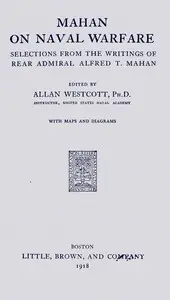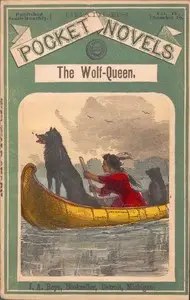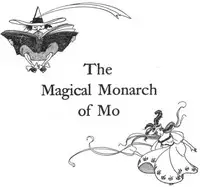"The Life of Nelson, Volume 1" by A. T. Mahan is a historical account written in the late 19th century. This work explores the life and career of Horatio Nelson, emphasizing his significant role in shaping British naval power and his extraordinary military achievements. The book aims to provide a comprehensive depiction of Nelson as both a remarkable naval commander and a complex individual. At the start of this volume, the author sets the stage by discussing Nelson's early life, his family background, and the initial challenges he faced due to his delicate health. Mahan provides an insightful look into Nelson's character through anecdotes and reflections on his youth, illustrating how his experiences shaped his ambition and sense of duty. The narrative further highlights his entry into the Navy, detailing key moments that foreshadowed the legendary career that would follow, as well as the relationships and environments that influenced his development as a leader. (This is an automatically generated summary.)

The Life of Nelson, Volume 1 The Embodiment of the Sea Power of Great Britain
By A. T. (Alfred Thayer) Mahan
"The Life of Nelson, Volume 1" by A. T. Mahan is a historical account written in the late 19th century. This work explores the life and career of Hora...
Alfred Thayer Mahan was a United States naval officer and historian, whom John Keegan called "the most important American strategist of the nineteenth century." His 1890 book The Influence of Sea Power Upon History, 1660–1783 won immediate recognition, especially in Europe, and with the publication of its 1892 successor, The Influence of Sea Power Upon the French Revolution and Empire, 1793–1812, he affirmed his status as a globally-known and regarded military strategist, historian, and theorist. Mahan's works encouraged the development of large capital ships — eventually leading to dreadnought battleships — as he was an advocate of the 'decisive battle' and of naval blockades. Critics, however, charged him with failing to adequately explain the rise of largely land-based empires, such as the German or Ottoman Empires, though Mahan did accurately predict both empires' defeats in World War I. Mahan directly influenced the dominant interwar period and World War II-era Japanese naval doctrine of the "decisive battle doctrine" , and he became a "household name" in Germany. He also promoted American control over Hawaii though he was "lukewarm" in regards to American imperialism in general. Four U.S. Navy ships have borne his name, as well as various buildings and roads; and his works are still read, discussed, and debated in military, historical, and scholarly circles.


















